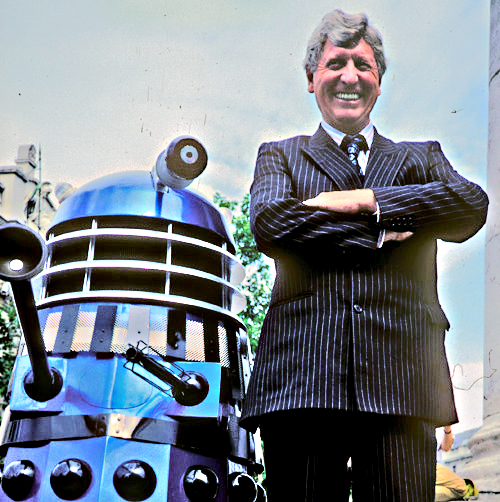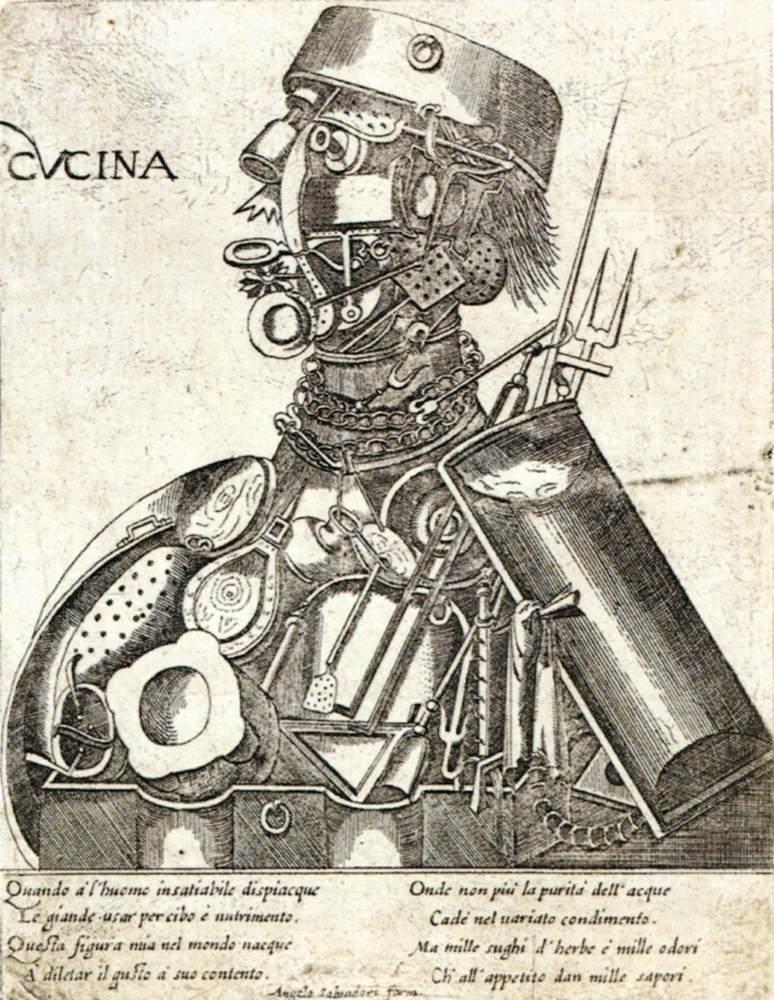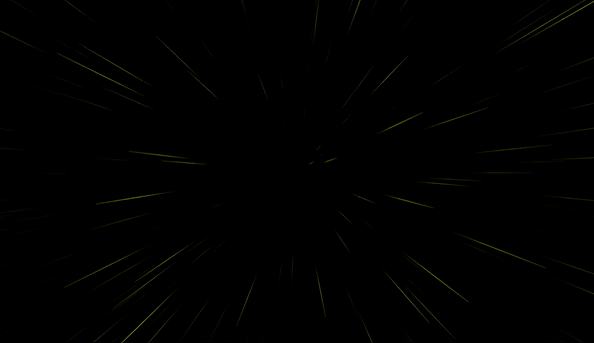|
The Key To Time
The sixteenth season of British science fiction television series ''Doctor Who'', known collectively as ''The Key to Time'', began on 2 September 1978 with '' The Ribos Operation'' and ended with ''The Armageddon Factor''. The arc was originally conceived by producer Graham Williams, who had proposed it as part of his application for the producer's job in 1976. The name refers to a powerful artefact, the segments of which are what the Fourth Doctor and his companions, Romana and K9, search for during the season. Anthony Read continued in his role as script editor from the previous season. Synopsis A figure calling himself the White Guardian commissions the Doctor and K9, assisted by a new companion, the Time Lady Romana, to find the six segments of the Key to Time, a cosmic artefact resembling a perfect cube that maintains the equilibrium of the universe. Since it is too powerful for any single being to possess, it has been split into six different segments and scattered ac ... [...More Info...] [...Related Items...] OR: [Wikipedia] [Google] [Baidu] |
Tom Baker
Thomas Stewart Baker (born 20 January 1934) is an English actor and writer. He is best known for having played the Fourth Doctor, fourth and longest-serving incarnation of The Doctor (Doctor Who), the Doctor in the science fiction television series ''Doctor Who'' from Robot (Doctor Who), 1974 to Logopolis, 1981. Later in his career, Baker performed in the television series ''Medics (British TV series), Medics'' (1992–1995), ''Randall & Hopkirk (Deceased) (2000 TV series), Randall & Hopkirk (Deceased)'' (2000–2001) and ''Monarch of the Glen (TV series), Monarch of the Glen'' (2004–2005). He also provided narration for the television comedy series ''Little Britain (TV series), Little Britain'' (2003–2006) and ''Little Britain USA'' (2008). His voice, which has been described as "sonorous", was voted the fourth-most recognisable in the UK in 2006. Early life Thomas Stewart Baker was born on Scotland Road in the Vauxhall, Liverpool, Vauxhall area of Liverpool on 20 Janu ... [...More Info...] [...Related Items...] OR: [Wikipedia] [Google] [Baidu] |
Lalla Ward
Sarah Jill "Lalla" Ward (born 28 June 1951) is an English actress, voice artist and author who is best known for playing the role of Romana II in the BBC television series ''Doctor Who'' from 1979 to 1981. Career Early career Ward's stage name, "Lalla", originates from her attempts as a toddler to pronounce her own name. She left school at age 14 because she "loathed every single minute of it" and took her O-levels on her own. Ward studied at the Central School of Speech and Drama from 1968 to 1971. After spending a few years painting, she auditioned at London drama schools "as a sort of dare" to herself: Ward began her acting career in the Hammer horror film '' Vampire Circus'' (1972), and played Lottie, the teenage daughter of Louisa Trotter (Gemma Jones) in '' The Duchess of Duke Street'', the BBC drama series of the mid-1970s. She appeared in the films '' England Made Me'' (1973), ''Matushka'' (1973), '' Rosebud'' (1975), and '' Crossed Swords'' (or ''The Prince and t ... [...More Info...] [...Related Items...] OR: [Wikipedia] [Google] [Baidu] |
The Stones Of Blood
''The Stones of Blood'' is the third serial of the 16th season of the British science fiction television series ''Doctor Who'', which was first broadcast in four weekly parts on BBC1 from 28 October to 18 November 1978. Part 4 was broadcast during the week of the show's fifteenth anniversary. The serial is set in and around an English stone circle and on a prison spaceship in hyperspace. In the serial, the criminal Cessair of Diplos (Susan Engel) is hiding on Earth after escaping the ship before being prosecuted for stealing the Great Seal of Diplos, the third segment of the powerful Key to Time. Plot Tracking the third segment of the Key to Time, the Fourth Doctor, Romana, and K9 arrive in modern-day Cornwall. They meet Professor Emilia Rumford and her friend Vivien Fay, studying the "Nine Travellers"--standing stones in Boscombe Moor. Their work is disrupted by a Druidic sect that worships the Cailleach, the Druidic goddess of war and magic, led by de Vries. De Vries and th ... [...More Info...] [...Related Items...] OR: [Wikipedia] [Google] [Baidu] |
List Of Doctor Who Villains
Over the course of its many years on television, the long-running British science fiction television series ''Doctor Who'' has not only seen changes in the actors to play the Doctor, but in the supporting cast as well. Companions The Doctor is usually accompanied in his travels by one to three companions (sometimes called assistants). These characters provide a surrogate with whom the audience can identify, and further the story by asking questions and getting into trouble, (similar to Dr. Watson in the Sherlock Holmes mysteries.) The Doctor regularly gains new companions and loses old ones; sometimes they return home, or find new causes on worlds they have visited. A few of the companions have died during the course of the series. Recurring characters UNIT personnel * Brigadier Sir Alistair Gordon Lethbridge-Stewart ( Nicholas Courtney) * Kate Lethbridge-Stewart ( Beverley Cressman, Jemma Redgrave) *Colonel Christofer Ibrahim (Alexander Devrient) * Captain Mike Yates ( ... [...More Info...] [...Related Items...] OR: [Wikipedia] [Google] [Baidu] |
Cyborg
A cyborg (, a portmanteau of ''cybernetics, cybernetic'' and ''organism'') is a being with both Organic matter, organic and biomechatronic body parts. The term was coined in 1960 by Manfred Clynes and Nathan S. Kline.Cyborgs and Space in ''Astronautics'' (September 1960), by Manfred E. Clynes and American scientist and researcher Nathan S. Kline. In contrast to Biorobotics, biorobots and Android (robot), androids, the term cyborg applies to a living organism that has restored function or enhanced abilities due to the integration of some artificial component or technology that relies on feedback. Description and definition Alternative names for a cyborg include cybernetic organism, cyber-organism, cyber-organic being, cybernetically enhanced organism, cybernetically augmented organism, te ...[...More Info...] [...Related Items...] OR: [Wikipedia] [Google] [Baidu] |
Hyperspace (science Fiction)
In science fiction, hyperspace (also known as nulspace, subspace, overspace, jumpspace and similar terms) is a concept relating to dimension#Additional dimensions, higher dimensions as well as parallel universes in fiction, parallel universes and a faster-than-light (FTL) method of interstellar travel. In its original meaning, the term ''hyperspace'' was simply a synonym for higher-dimensional space. This usage was most common in 19th-century textbooks and is still occasionally found in academic and popular science texts, for example, ''Hyperspace (book), Hyperspace'' (1994).'''' Its science fiction usage originated in the magazine ''Amazing Stories Quarterly'' in 1931 and within several decades it became one of the most popular Trope (literature), tropes of science fiction, popularized by its use in the works of authors such as Isaac Asimov and Edwin Charles Tubb, E. C. Tubb, and media franchises such as ''Star Wars''. One of the main reasons for the concept's popularity in ... [...More Info...] [...Related Items...] OR: [Wikipedia] [Google] [Baidu] |
Pennant Roberts
John Pennant Roberts (15 December 1940 – 22 June 2010) was a British director and producer known for his work in British television drama. Early life Roberts was born at Weston-super-Mare in Somerset to Welsh parents. He went to school in Bristol and read physics at the University of Bristol. Career Beginning his television career as a floor manager with BBC Wales, he later directed BBC television drama programmes including '' Softly, Softly'', ''Doomwatch'', ''The Onedin Line'', ''Sutherland's Law'', '' Survivors'', ''Angels'', ''Blake's 7'', ''Doctor Who'', ''Juliet Bravo'', '' Tenko'' and ''Howards' Way''. Regarding Roberts' contribution to ''Doctor Who'', for which he directed five televised serials between 1977 and 1985 (starring Tom Baker, Peter Davison and Colin Baker), as well as another, '' Shada'', which wasn't originally completed, Patrick Mulkern of ''Radio Times'' wrote, "Pennant Roberts wasn’t one of ''Whos most dynamic directors, but he was shrewd at ca ... [...More Info...] [...Related Items...] OR: [Wikipedia] [Google] [Baidu] |
The Pirate Planet
''The Pirate Planet'' is the second serial of the 16th season in the British science fiction television series ''Doctor Who'', which was first broadcast in four weekly parts on BBC1 from 30 September to 21 October 1978. It forms the second serial of the ''Key to Time'' story arc. It was written by Douglas Adams and features some of his humour. The tyrant Queen Xanxia (a dual role played by Vi Delmar and Rosalind Lloyd) and the Captain (Bruce Purchase) use the hollow planet Zanak as a spaceship that surrounds smaller planets, including Calufrax, the second segment of the powerful Key to Time in disguise, to plunder the planets' resources that help keep Xanxia alive. Plot The Key to Time tracer points the Fourth Doctor and Romana to the cold and boring planet of Calufrax, but when they arrive they find an unusual civilisation living in perpetual prosperity. Although a strange band of people with mysterious powers known as the Mentiads are feared by the society, the Doctor discove ... [...More Info...] [...Related Items...] OR: [Wikipedia] [Google] [Baidu] |
Confidence Trick
A scam, or a confidence trick, is an attempt to defraud a person or group after first gaining their trust. Confidence tricks exploit victims using a combination of the victim's credulity, naivety, compassion, vanity, confidence, irresponsibility, and greed. Researchers have defined confidence tricks as "a distinctive species of fraudulent conduct ... intending to further voluntary exchanges that are not mutually beneficial", as they "benefit con operators ('con men') at the expense of their victims (the ' marks')". Terminology Other terms for "scam" include confidence trick, con, con game, confidence game, confidence scheme, ripoff, stratagem, finesse, grift, hustle, bunko, bunco, swindle, flimflam, gaffle, and bamboozle. The perpetrator is often referred to as a scammer, confidence man, con man, con artist, grifter, hustler, or swindler. The intended victims are known as marks, suckers, stooges, mugs, rubes, or gulls (from the word ''gullible''). When accomplices are e ... [...More Info...] [...Related Items...] OR: [Wikipedia] [Google] [Baidu] |
Doctor (Doctor Who)
The Doctor, sometimes known as Doctor Who, is the protagonist of the long-running BBC science fiction television series ''Doctor Who''. An Extraterrestrials in popular culture, extraterrestrial Time Lord, the Doctor travels the universe in a time travelling Spacecraft, spaceship called the TARDIS, often with Companion (Doctor Who), companions. Since the show's inception in 1963, the character has been portrayed by List of actors who have played the Doctor, fourteen lead actors. The transition to each succeeding actor is explained within the show's narrative through the plot device of Regeneration (Doctor Who), regeneration, a biological function of Time Lords that allows a change of cellular structure and appearance with recovery following a mortal injury. A number of other actors have played the character in stage and audio plays, as well as in various film and television productions. The Doctor has also been featured in films and a vast range of spin-off novels, audio dramas ... [...More Info...] [...Related Items...] OR: [Wikipedia] [Google] [Baidu] |
Robert Holmes (scriptwriter)
Robert Colin Holmes (2 April 1926 – 24 May 1986) was a British television scriptwriter. For over 25 years, he contributed to some of the most popular programmes screened in the UK. He is particularly remembered for his work on science fiction programmes, most notably his extensive contributions to ''Doctor Who'', which included working as its script editor from 1974 to 1977. Holmes suffered ill health from the early 1980s. He died in May 1986 while working on scripts for the second and final Sixth Doctor season '' The Trial of a Time Lord''; his last serial as sole writer, '' The Mysterious Planet'', and '' The Ultimate Foe'', of which he only wrote the first part (the second being completed by Pip and Jane Baker), were released posthumously between September and December 1986. Early career In 1944, at the age of 18, Holmes joined the army, fighting with the Queen's Own Cameron Highlanders regiment in Burma. He rapidly earned a commission, and as such became the youngest co ... [...More Info...] [...Related Items...] OR: [Wikipedia] [Google] [Baidu] |
George Spenton-Foster
George Spenton-Foster (11 November 1926 – 26 December 1993) was a British television director and television producer. After producing a few anthology series in his homeland like ''Thirty-Minute Theatre'', he went to Australia in 1970 to produce a short-lived police series ''The Link Men''. For the BBC, Spenton-Foster directed two ''Doctor Who'' stories: ''Image of the Fendahl'' (1977) and ''The Ribos Operation'' (1978). He also directed four ''Blake's 7'' episodes from its second series in 1979: "Weapon", "Pressure Point", "Voice from the Past" and "Gambit". In late 1982, Spenton-Foster left the Liverpool-based soap opera ''Brookside Brookside may refer to: Geography Canada * Brookside, Edmonton * Brookside, Newfoundland and Labrador * Brookside, Nova Scotia United Kingdom * Brookside, Berkshire, England * Brookside, Telford, an area of Telford, England United States * Bro ...'' four days before it aired because of a disagreement over bad language in the dialogue. Re ... [...More Info...] [...Related Items...] OR: [Wikipedia] [Google] [Baidu] |




